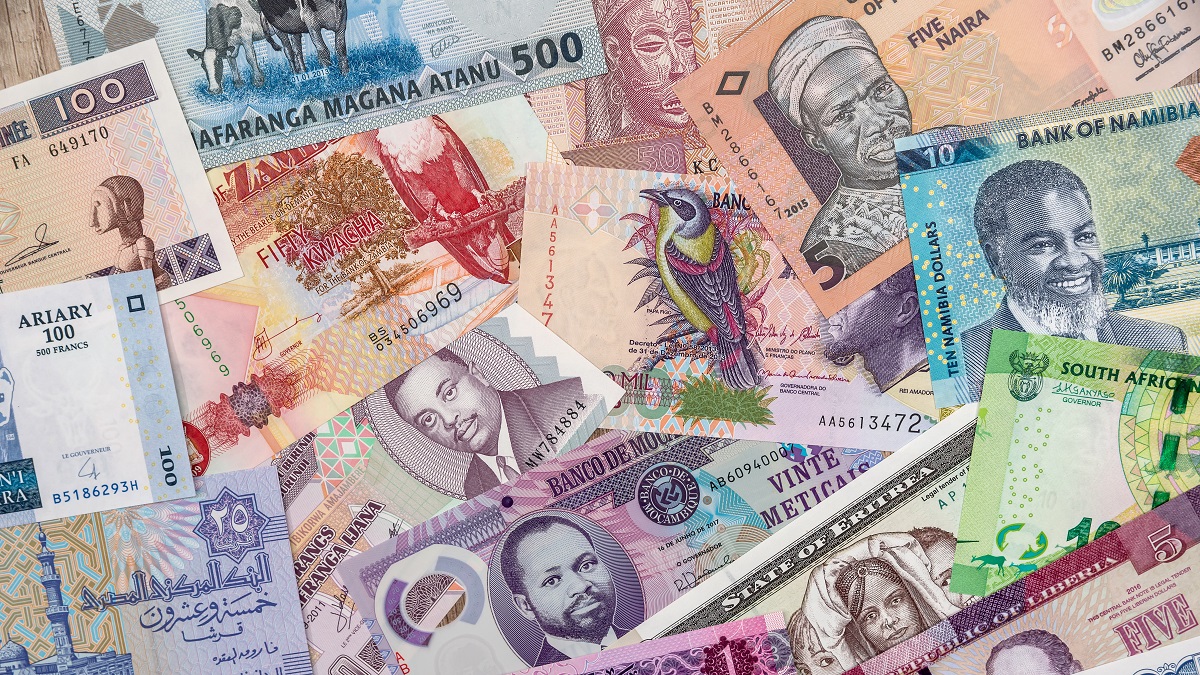UNCTAD, UNODC and their partners have developed tools and methods that are supporting 22 countries in Africa, Asia and Latin America track selected illicit financial flows.
© Shutterstock/ RomanR | Currency notes from various African countries.
The world needs comparable and reliable statistics on illicit financial flows (IFFs) to shed light on the activities, sectors and channels most prone to them and inform the actions needed to curb these flows.
IFFs refer to financial flows from one country to another that are generated, transferred or used illicitly. They divert resources from essential services and fuel crime and corruption. As a hidden phenomenon, they are not easy to track or measure due to difficulties in obtaining data.
“The measurement challenges depend on the types of illicit finance affecting a country combined with data availability issues, mandates and capacities of institutions and national policy priorities,” said Anu Peltola, who heads UNCTAD’s statistics team.
To counter these challenges, Ms. Peltola said, joint work is required. The national statistical office, usually the focal point for Sustainable Development Goals and their indicators, should lead the work and bring the necessary institutions together to measure IFFs.
UNCTAD and the United Nations Office on Drugs and Crime (UNODC) developed tools and methods that are supporting national authorities in 12 countries across Africa, six in Asia and four in Latin America track selected IFFs. The methods have been tested in joint projects with pioneering countries.
Experiences from some African countries
African countries shared their experiences and findings during a project closing conference in Ethiopia in June 2022. Watch the videos.
Namibia’s pilot study analysed illicit flows related to trade misinvoicing. It revealed illicit finance leaving and entering the country bundled with six commodities: diamonds, diesel, petrol, gold, uranium and fish.
The revelation underlined the need for the comparison of trade data between trading partners to correct other discrepancies besides IFFs.
Nigeria studied the global distribution of multinational enterprises’ (MNEs) profits and corporate taxes to gain a better understanding of profit shifting.
It found that some multinationals make transfers almost exclusively to affiliates in tax havens. Some transfers amounted to as much as 3% of the GDP of the tax havens.
Pioneering countries undertook a stepwise process to assess IFF risks, identify national stakeholders and review data availability and quality before calculating IFF estimates.
Egypt takes a holistic approach
Of the 22 countries that tested the methods developed by UNCTAD and UNODC between 2018 and 2022, Egypt is the only one that addresses IFFs using a holistic approach.
Egyptian authorities are studying both tax and commercial and crime-related IFFs in parallel. On one hand, working closely with UNCTAD, Egypt gathers data on trade misinvoicing and profit shifting by MNEs. On the other hand, in close collaboration with UNODC, it gathers data on drug smuggling.
UNCTAD and UNODC conducted training workshops to equip Egyptian statisticians and experts involved in the treatment and interpretation of data on how to separate IFFs from legal trade and approaches to data compilation and analysis.
Through the project, 18 national agencies, including the national statistical office and six ministries came together to form an expert group to cooperate on IFFs.
Egypt also recently established a new department for the statistical measurement of IFFs, thanks to capacity-building support through Integrated SDGs Financing project.
The department within the Customs Authority of Egypt will compile robust and reliable national statistics on IFFs, the prominent fields and commodities. Its findings will inform policymakers on the movement of illicit financial resources, laying the groundwork for corrective policy actions.
Leading and coordinating the work of compiling IFF statistics, capitalizing on received training and enhanced statistical capacity, the department will ensure national ownership and sustainability for the statistical measurement of IFFs.
From regional to global efforts
A panel discussion on illicit financial flows shared the outcomes of the country pilot tests with the international community at UNCTAD’s second Illicit Trade Forum in Geneva.
Delegates congratulated countries for their pioneering work in this challenging area and emphasized the importance of high-quality information for more targeted and effective policy action.
UNCTAD and UNODC, as the custodians of SDG indicator 16.4.1 on illicit financial flows, developed concepts and methods to measure IFFs in consultation with a global task force.
The resulting conceptual framework for the statistical measurement of IFFs was endorsed by all countries at the UN Statistical Commission in March 2022.
And the methodological guidelines to measure tax and commercial IFFs and guidance on crime-related IFFs are now being refined based on pilot testing. See UNCTAD’s SDG Pulse for more information.
UNCTAD will continue supporting member states in tracking and curbing IFFs through a global project scheduled to start in 2023.

